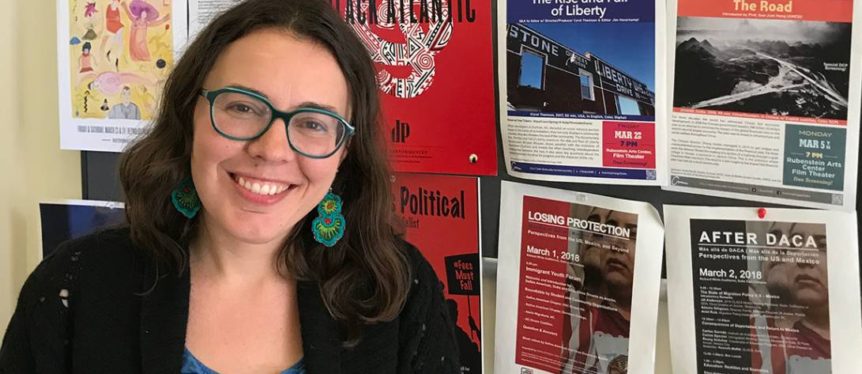By Pablo Mino
March 4, 2018
While immigration activists have focused on the implications of ending DACA and its political, legal and humanitarian consequences, scholars at a Duke panel Friday cautioned that the DACA concerns were part of a larger, troubling move against immigrants who are long-time residents of the United States.
The symposium organized by the Center of Latin American and Caribbean Studies, “After DACA/Más Allá de DACA: Perspectives from the U.S. and Mexico,” reflected on the future of immigrants who have lived in the United States for years and whose families include members with DACA status or U.S. citizenship.
Jill Anderson, Mellon Visiting Professor at the Center for Latin American and Caribbean Studies and one of the panelists of the event, is the co-author of the book Los Otros Dreamers (2014), a community-published collection of stories about immigrants’ experience of return and deportation to Mexico from the United States.
“We organized this event in part around the threatened termination of DACA, but also to draw attention to the fact that many people who one would identify as dreamer or DACA recipient have already been deported — or have returned — to family members in Mexico or other countries,” Anderson said.
The symposium also featured scholars and analysts from the Migration Policy Institute, Americans for Immigrant Justice, Mexicans in Exile, Universidad de Veracruz, the New School and Durham Public Schools. Students from Duke and other North Carolina universities – some with DACA status – were also part of the conversations.
As of September 2017, 689,800 people in the country were DACA recipients. North Carolina was home to 25,100, according to statistics provided by the Migration Policy Institute.
Anderson is currently the director of the non-profit Otros Dreams en Acción (ODA), which is dedicated to advocacy and support of deported and returning immigrant youth in Mexico. The organization was created and by people who grew up in the United States but who currently find themselves in Mexico because of deportation or the threat of deportation.
“People were just so hungry to be heard and tell their stories. Under the Obama administration, nobody was talking about deportation but it was certainly happening,” said Anderson.
“Under the Trump administration, deportation numbers haven’t increased even though they are certainly a threat,” Anderson added. “But what is happening is the 37 percent increase in interior removals in 2017. These are people who are not in the process of crossing the border but have been living here for years and are already a part of the community. It certainly happened before, but now it’s worse.”
Anderson will speak on issues related to Latina/os exiled to Latin America at an event Tuesday, March 6, hosted by the Center for Multicultural Affairs.
Read it on Duke Today.

